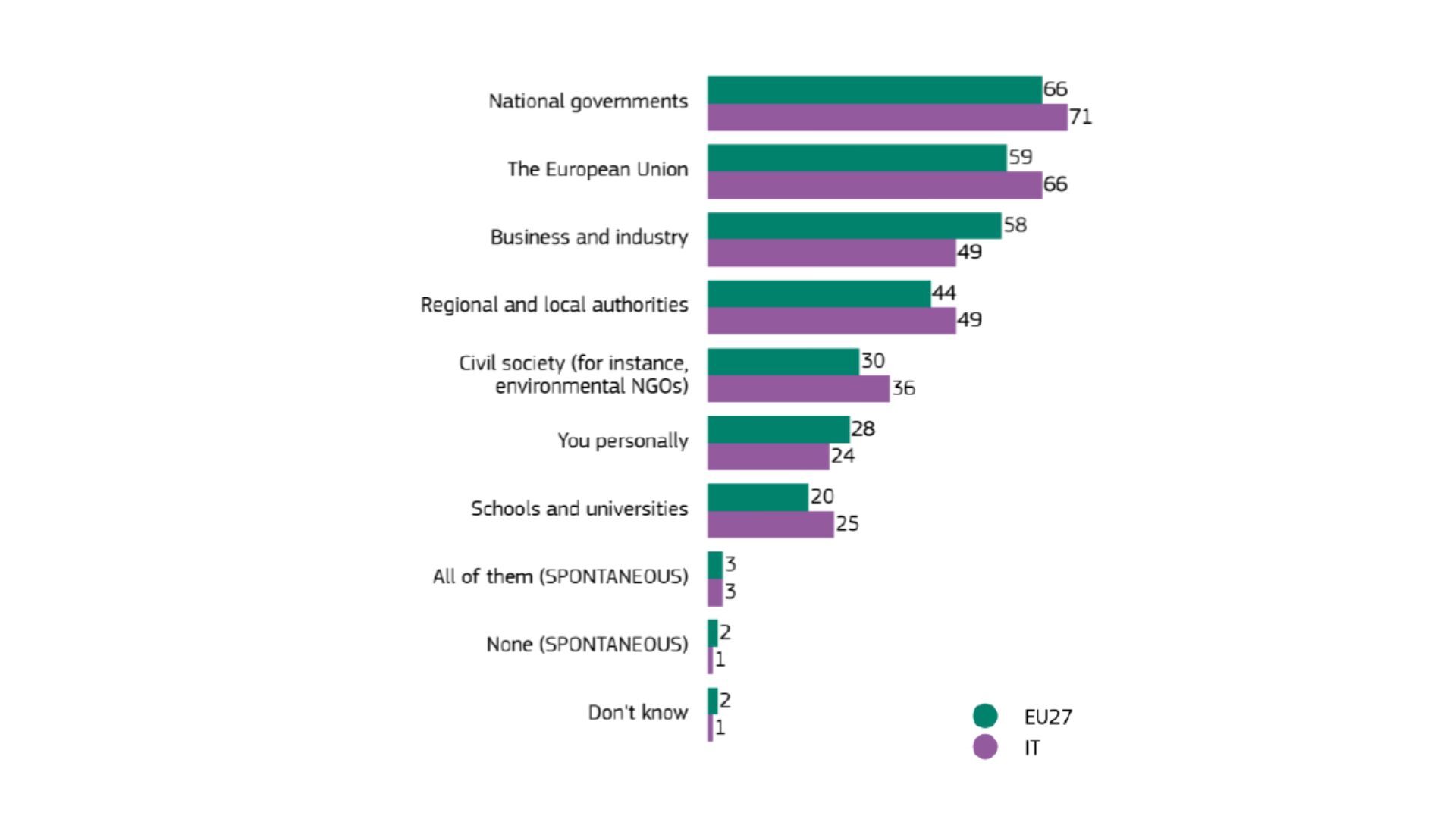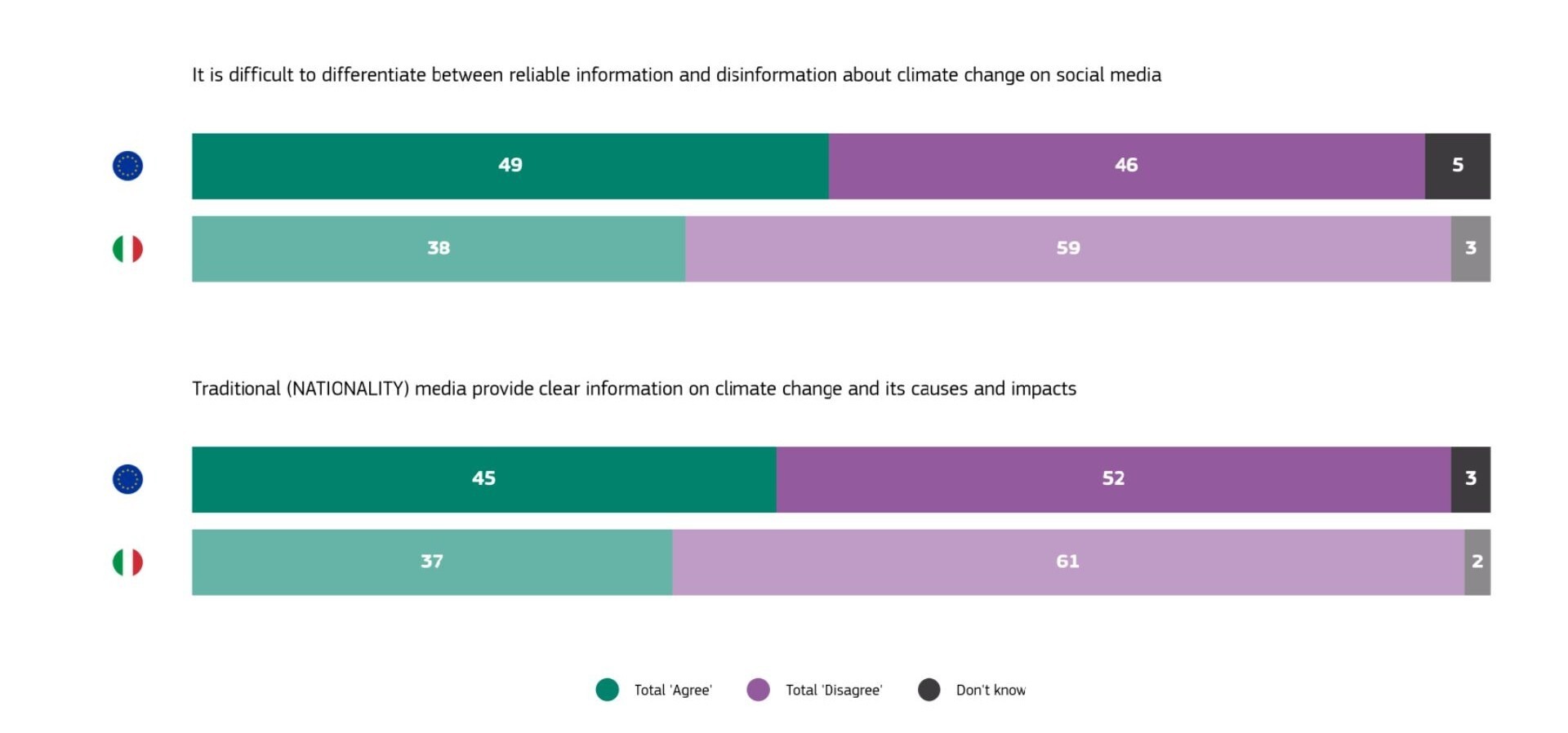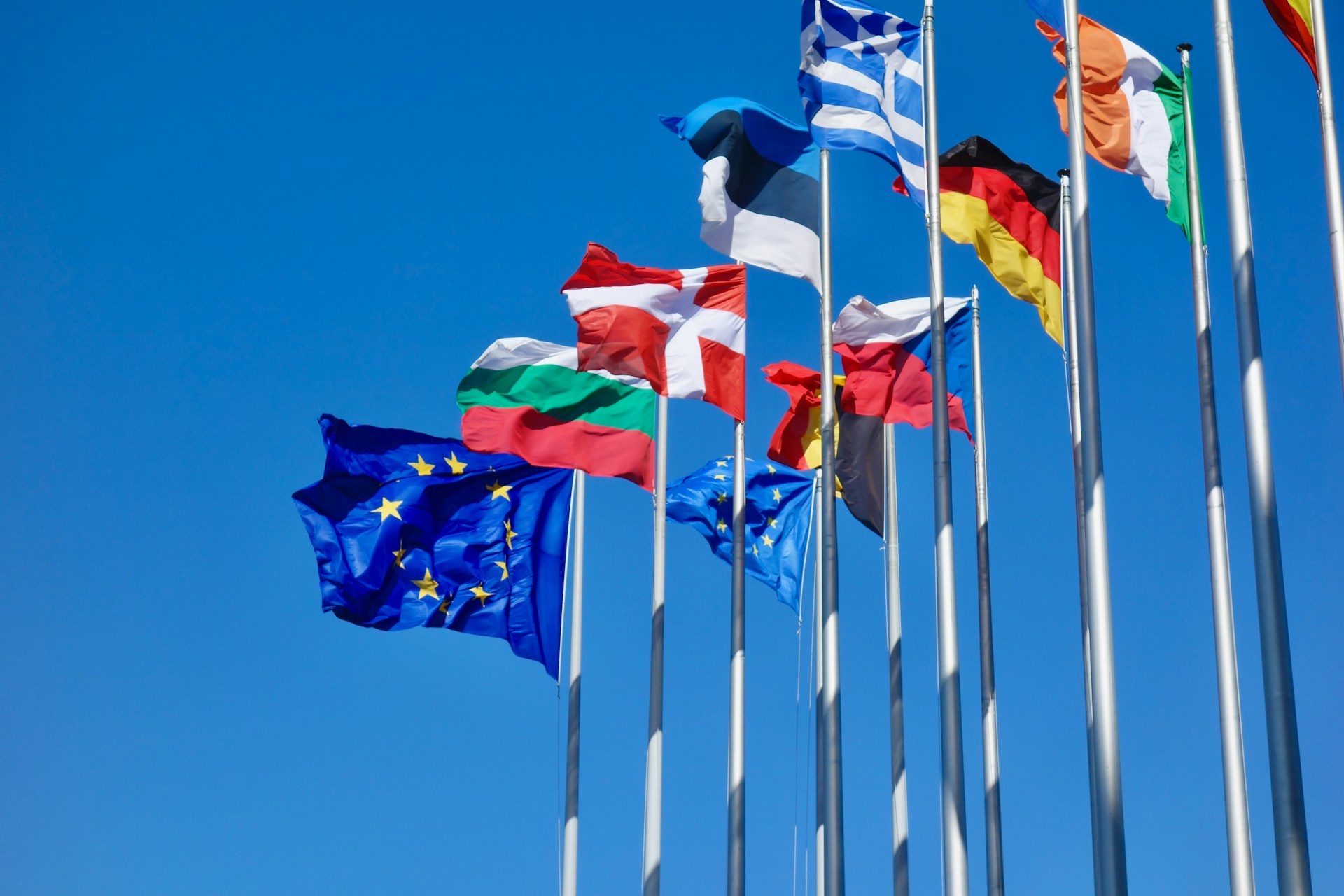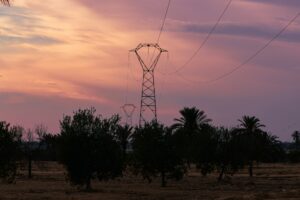The climate crisis is among the most significant challenges the world faces today. This is the view of Italian and European citizens, surveyed just a few months ago through the Special Eurobarometer 565, a public opinion poll based on a sample of over 26,000 EU citizens, providing a snapshot of European public opinion on themes related to climate change and the transition.
Among the findings revealed by the survey are citizens’ concerns about the future, their perception of how the climate crisis is portrayed in the media, and their views on who should take the lead in addressing it.
Invest now to avoid paying a higher price later
On average, among citizens of the 27 EU Member States, climate change ranks high on the list of people’s concerns, preceded only by armed conflict and poverty. Italy is no exception, where in addition to climate change and conflict, economic concerns complete the top three.
In general, whether in Italy (86%) or in other Member States – the European average is 84% and percentages exceed 50% in every EU country – citizens perceive the climate crisis as a “serious problem.”
At the same time, climate action is identified as the path to a more sustainable future, both in terms of health and the economy. Investment in the transition, in particular, is identified as key to mitigating the impacts of climate change. In fact, 77% of Europeans (85% in Italy) believe such investments would cost less than the potential damages caused by climate change.
National governments, European institutions and businesses: the (hoped-for) actors of change
Although climate change is a collective challenge that requires coordinated efforts across all actors of our society, European citizens seem to identify national governments, the European Union and industry – in that order – as the main actors responsible for taking action.

Responses to the question ‘In your opinion, who within the EU is best placed for tackling climate change?’. Source: European Commission.
The Eurobarometer also highlights the importance of synergy between these players: 84% of citizens believe European companies need more support to compete in the global clean tech market. At the same time, 77% of EU citizens (rising to 88% in Italy) say that competitiveness and industrial innovation will depend greatly on how well companies can implement climate-sustainable practices.
Italy: a climate change hotspot
The survey also explores perceptions of vulnerability to the impacts of climate change. The data reveals a divided Europe, with southern European countries expressing the greatest concern about floods, wildfires, extreme weather events and air pollution.
The highest levels of concern are found in countries particularly exposed to these risks, such as Greece and Malta. More broadly, southern European nations report higher levels of concern than their northern counterparts. This is also the case in Italy, where 48% of the population feels exposed to these risks (compared to the European average of 38%).
Climate and communication: a gap to bridge
Despite widespread recognition of the climate crisis as a serious issue, the survey reveals a significant gap in how clearly the issue is communicated by the media. Across the EU, 52% of citizens believe that traditional media do not provide clear information on climate change, a figure that rises to 61% in Italy. Furthermore, nearly half of EU respondents (49%) report difficulties in identifying reliable content on social media platforms, highlighting broader challenges in navigating today’s complex information landscape.

Source: European Commission
This uncertainty reflects a deeper challenge facing Italy regarding the media’s role in shaping public understanding of the climate crisis. A recent study commissioned by Greenpeace Italy and conducted by the Osservatorio di Pavia indicates that in the first four months of 2024, only 2% of television programmes covered climate and energy transition topics, while news segments specifically focused on the climate crisis accounted for just 0.1%. During the same period, major Italian newspapers published an average of 4.4 articles per day that mentioned climate or the transition at least once, while articles entirely dedicated to climate change averaged only one every two days. This limited coverage exists within a media ecosystem that remains financially dependent on advertising from high-emission industries, raising questions about the extent to which the media is able to deliver comprehensive, clear and impartial information on the climate.
Consensus on the Green Deal
European citizens, and Italian citizens in particular, recognise the urgency of the climate crisis and show strong support for climate action, with 81% of EU citizens (84% of Italians) backing the Green Deal’s objective of achieving net-zero emissions by 2050.
So what needs to be done to achieve these goals? A large majority of Italians (71%) identify national governments as the main actors responsible for promoting climate action, a higher proportion than the EU average, while 66% look to the European Union for leadership. These results signal clear public expectations for both national and EU institutions to take decisive and coordinated measures in addressing the climate crisis, involving, first and foremost, European businesses.
Photo by Antoine Schibler








